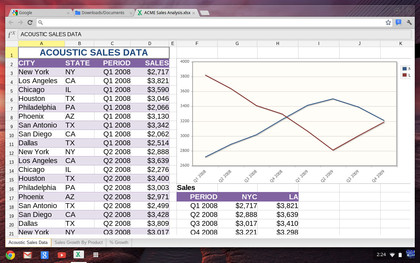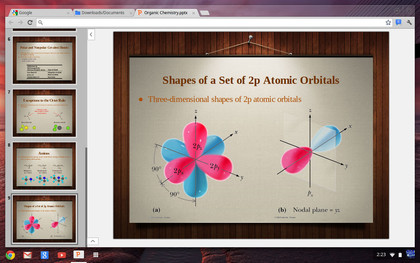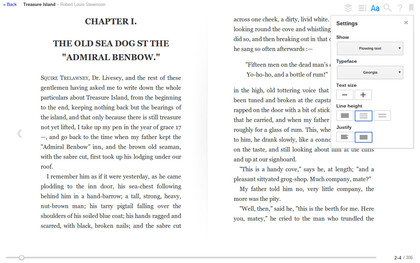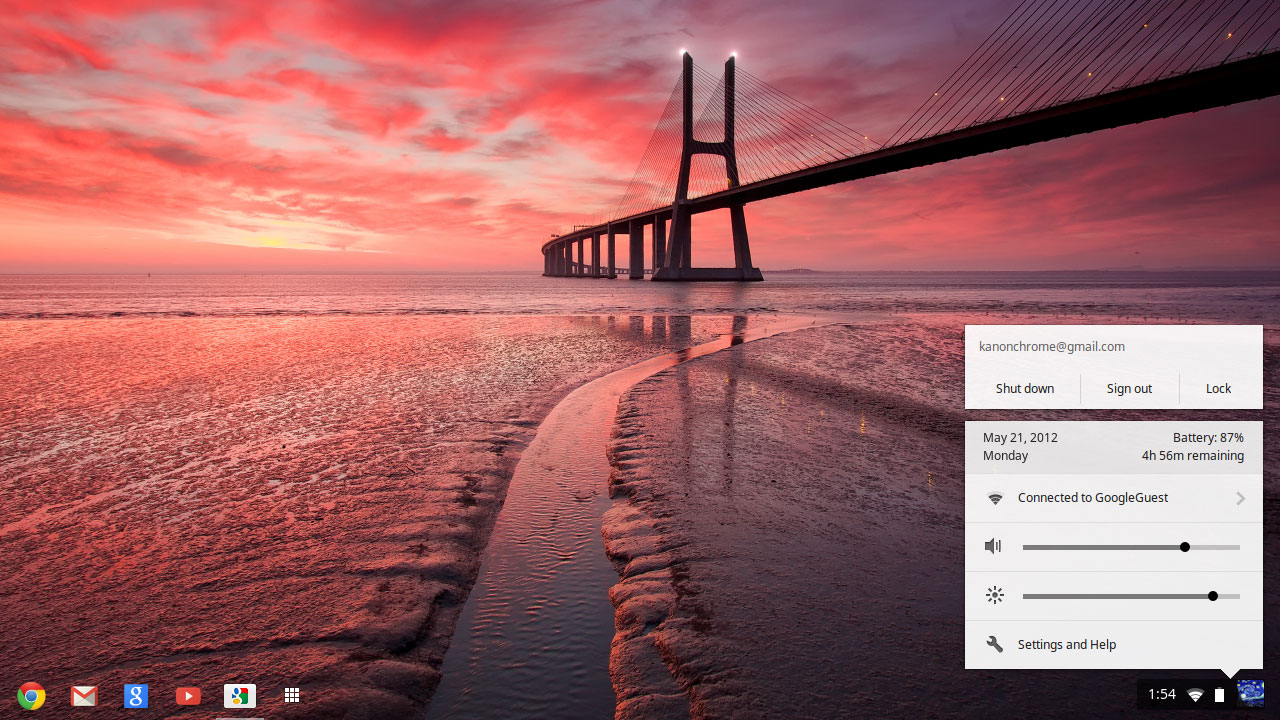Why you can trust TechRadar
The second key issue with a cloud computer is that it becomes significantly less useful when it is offline. The computing world was rooted in offline for a long time and we are simply not used to feeling quite so bereft of functionality when we are not connected.
That, of course, is changing as well; modern games often require connections, our documents are often stored on servers rather than locally as offices become more collaborative and our data is often shared rather than hoarded on hard drives.

But a computer being built for online cannot become largely pointless in the still significant portions of our days when we have no meaningful data connection.
Google's Chrome OS has been hammered on this point since its arrival, and although you can laud the company's brave new world, the original Chrome OS suffered hugely in comparison to other computing operating systems.

It was obvious to Google as well, however, and the company has worked hard to rectify that problem. Offline Gmail was a significant arrival for Chrome OS in its first year, but the lack of offline Google Docs has been damning for the whole project.
Google insists that offline Docs will finally arrive in the coming weeks, and it's not hyperbolic to insist that any significant delay on this could prove to be a nail in the coffin of this OS.

Also significant is the fact that Google has started to group offline apps in its Chrome Web Store, allowed copying to the local drive (although it doesn't make this straightforward or obvious) from flash drives, and made sure that you can open files when you are offline.
The files accessible include Office docs, PDF, ZIPs, RARs and movie and sound files.
Everything then syncs back up when you are online, and that will include the recently launched Google Drive in the next rollout of Chrome OS. It should be an elegant system – and it's a shame we'll have to wait to find out just how elegant across the board it is for a few more weeks.
Patrick Goss is the ex-Editor in Chief of TechRadar. Patrick was a passionate and experienced journalist, and he has been lucky enough to work on some of the finest online properties on the planet, building audiences everywhere and establishing himself at the forefront of digital content. After a long stint as the boss at TechRadar, Patrick has now moved on to a role with Apple, where he is the Managing Editor for the App Store in the UK.
What is a hands on review?
Hands on reviews' are a journalist's first impressions of a piece of kit based on spending some time with it. It may be just a few moments, or a few hours. The important thing is we have been able to play with it ourselves and can give you some sense of what it's like to use, even if it's only an embryonic view. For more information, see TechRadar's Reviews Guarantee.

